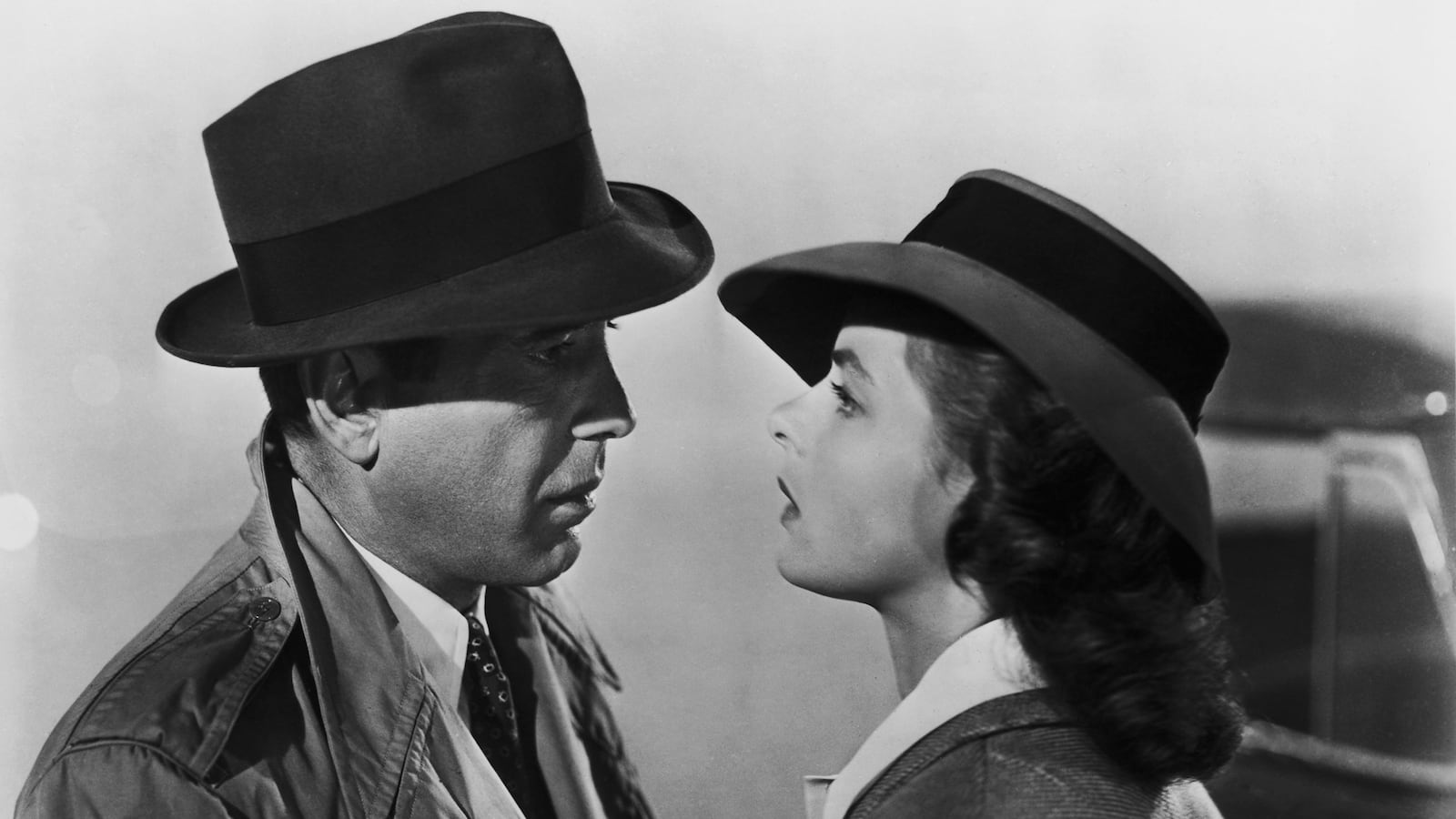This year marks the 75th anniversary of Casablanca, one of the most cherished films ever made. Commemorations are scheduled to take place around the country and the globe, while Warner Bros. plans a much-anticipated theatrical release this fall, complete with all the glitz and fanfare reserved for its biggest successes and most decorated stars. Ironically, this Hollywood juggernaut was made by and about one of the least glamorous groups of people in the world: refugees.
I was reminded of this when, in recent weeks, I came across a small story about a French olive farmer picked up by several news outlets. Cédric Herrou lives in the remote southern foothills near Breil-sur-Roya, just miles from the Mediterranean Sea and the Italian border. In summer 2016, Herrou took it upon himself to help refugees in transit, mostly from North Africa en route to Germany and the United Kingdom, by guiding them across the border and providing food and shelter at his home. After being caught and tried, on two separate occasions, he has been exonerated, and his cause has gained increasing attention and support.
Recalling the perilous migrations of a previous era—when European Jews, attempting to escape persecution by the Nazis and their Vichy henchmen, followed a refugee trail that often led through the same region—Herrou’s case not only highlights the work of someone who has rightfully come to be regarded as a local hero, but also poses a direct challenge to the growing rightwing, anti-immigrant rhetoric that ignores the founding principles of the French Republic. “Liberté, Egalité, Fraternité,” insisted Herrou’s lawyer, Zia Oloumi, are the enduring tenets that Herrou and all loyal French citizens are obliged to live by.
They are also the tenets invoked in the underlying story of Casablanca. In the summer of 1938, while trying to help relatives stranded in Vienna, a young American playwright named Murray Burnett encountered a similar refugee trail from Nazi-engulfed Germany and Austria to Marseilles and across the Mediterranean to Morocco (and from there, if one was lucky, to Lisbon and on to the Americas). He and his wife helped smuggle out valuables belonging to her Austrian family, making their way with the goods to the South of France, not far from Breil-sur-Roya. One night, in a nightclub on the outskirts of Nice, a smoky joint with a black pianist from Chicago and polyglot crowd, Burnett hatched the idea for a play that would ultimately become Hollywood’s greatest refugee story.
In his rendition, an unproduced three-act play called Everybody Comes to Rick’s, co-written by Joan Alison, the title character, a mercurial saloonkeeper, is a local hero not all that different from Herrou in spite of his white dinner jacket. He, too, defies the law—the Vichy authorities, in this case—by helping a desperate Bulgarian refugee couple secure exit visas and aiding the underground resistance. “I felt at the time and still feel that no one can remain neutral in a world like that,” commented Burnett in a 1983 interview. “You had to take sides, no matter how cynical you might have been, no matter how much you wanted to be uninvolved. You had to side with the refugees.”
In the Academy Award-winning screenplay, crafted by Julius and Philip Epstein and Howard Koch, an added line, delivered by Humphrey Bogart’s Rick twice for emphasis, further emphasizes the transformative powers of humanitarian crisis on those who come into contact with it. “I stick my neck out for nobody,” he says, an apparent isolationist. But well before the final reel, he’s doing exactly that at great risk to himself. Of course, this was a Hollywood movie, with international stars—alongside Bogie stood Ingrid Bergman, Paul Henreid, and Claude Rains—and yet it also had a deep ensemble cast of refugee actors (Curt Bois, Lotte Palfi, Paul Andor, Trude Berliner, among others) re-enacting their lived experience onscreen.
It’s hard to miss the haunting affinities between World War II and the refugee crisis of today. The number of stateless refugees, especially in the wake of the civil war in Syria and the fallout from Libya, is currently on par with the levels reached during the ’40s. And the anti-refugee rhetoric of our own president, his attempted imposition of a seven-nation ban and his promise to round up his version of the usual suspects, matches in many respects that of the highly vocal isolationist and nativist faction in the United States at the time of Casablanca’s making.
Thankfully, Hollywood hasn’t lost sight of this. At January’s SAG Awards, Julia Louis-Dreyfus, the daughter of a French-born immigrant, delivered a forceful address in which she lambasted Trump’s proposed ban as “un-American,” and Asghar Farhadi’s Oscar acceptance speech, presented in absentia last Sunday night, decried the “inhumane law that bans entry of immigrants to the U.S.” Perhaps even more poignant, in 2016, the South African-born, Berlin-based artist Candice Breitz created a stirring video installation she called Love Story. In it, she features the stories of six refugees—from Syria, Somalia, Angola, and elsewhere—seeking asylum in Berlin, New York, and Cape Town. After each refugee tells his or her own tale, viewers are treated to a faithful retelling by actors Alec Baldwin and Julianne Moore, providing an additional layer of urgency and global recognition.
As we celebrate the film’s 75th anniversary, we should reflect on how critical it is that we all speak up, and on how Hollywood can and should use its powerful voice to defend those whose stories are so often forgotten or overlooked.
Noah Isenberg directs the Screen Studies program at the New School in New York City and is the author of We’ll Always Have Casablanca: The Life, Legend, and Afterlife of Hollywood’s Most Beloved Movie.






